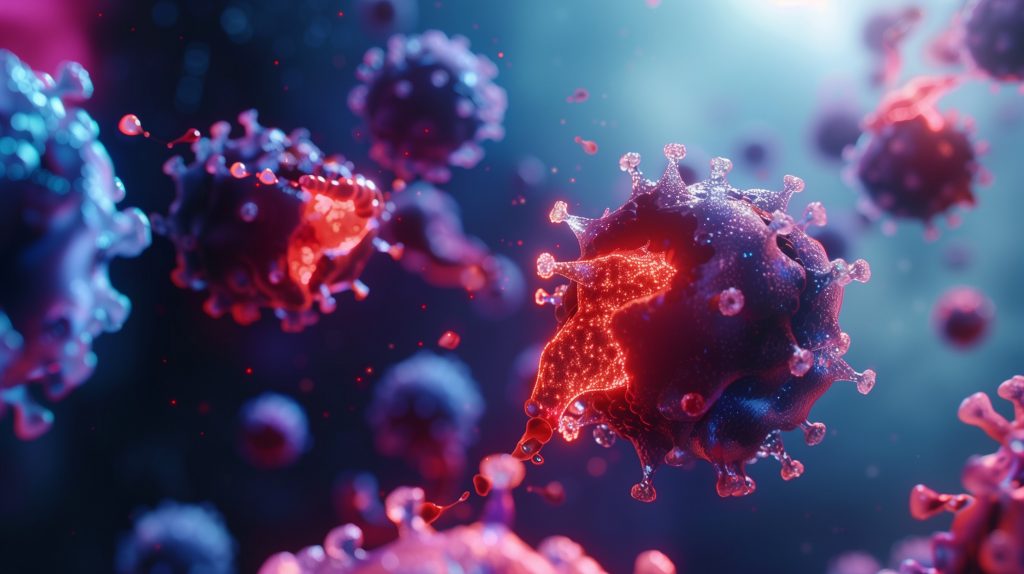
A new study from Northwestern University’s Chemistry of Life Processes Institute member Xiaoyu Zhang (Chemistry) and team offers a novel strategy to potentially target cancer cells by manipulating the immune system in previously unexplored ways.
Immunotherapy has emerged as a powerful tool in cancer treatment by harnessing the body’s own immune system to recognize and attack cancer cells. However, it has been most successful in patients whose tumors have many mutations, producing what are known as neoantigens—abnormal protein fragments that alert immune cells to the presence of cancer. The problem is that not all cancers generate a sufficient amount of neoantigens and are less responsive to immunotherapy, which leaves many patients with limited options for treatment.
Zhang, Deyu Fang (Pathology) and lab members Chenlu Zhang, Chen Zhou, Assa Magassa, and Xiaokang Jin, created a technology that may expand the scope of immunotherapy, making it possible to treat more patients, including those who lack the high mutational burden needed to produce sufficient neoantigens.
Mapping the Reactive Cysteines on Cancer Antigens
The study focuses on a previously underexplored aspect of cancer immunology: the role of cysteines—a type of amino acid, which are the building blocks of proteins—on MHC-I-bound peptide antigens. MHC-I molecules are proteins on the surface of cells that present fragments of proteins (peptides) to immune cells. These peptide antigens are crucial for immune recognition, but the potential for cysteines on these antigens as therapeutic targets to improve immune responses has been unrecognized.
“Through a new chemical biology platform, our lab was able to map these cysteines and find that some of them are highly reactive, meaning they could potentially be targeted with small molecules to modulate immune function,” says Zhang. “By targeting these cysteines with a bispecific molecule—a compound that can bind two different targets simultaneously—we could induce antibody-dependent cellular phagocytosis (ADCP)—a process that boosts the immune system’s ability to clear cancer cells.”
Targeting “Pseudo-Neoantigens”
Perhaps the most exciting aspect of the study is its potential to overcome one of the biggest limitations of current immunotherapy: the reliance on neoantigens.
“Neoantigens are often found only in tumors with high mutational burdens, making immunotherapy less effective for patients with tumors that don’t carry these mutations,” says Zhang.
Zhang’s research introduces the concept of “pseudo-neoantigens”—chemically modified peptide antigens. These modified antigens could offer a way to target cancers in patients who have tumors with low mutational rates, thus expanding the potential reach of immunotherapy.
Bridging Chemical Biology and Immunology
This study is significant not only for its therapeutic potential but also for its ability to bridge chemical biology and immunology. The research also paves the way for the design of new therapeutic strategies, using small molecules to manipulate immune functions in more precise and targeted ways. These strategies could lead to more personalized and effective cancer treatments, offering hope to a much wider range of patients.
Moving Toward Therapeutics
As the field of cancer immunotherapy continues to evolve, Zhang’s findings represent a promising step forward in the quest to expand cancer treatment options. The next steps will be to refine these bispecific molecules further and explore their potential in cancer therapy. With continued research, this innovative integration of chemistry and biology to develop new immune boosters could potentially transform cancer immunotherapy.
by Lisa La Vallee

